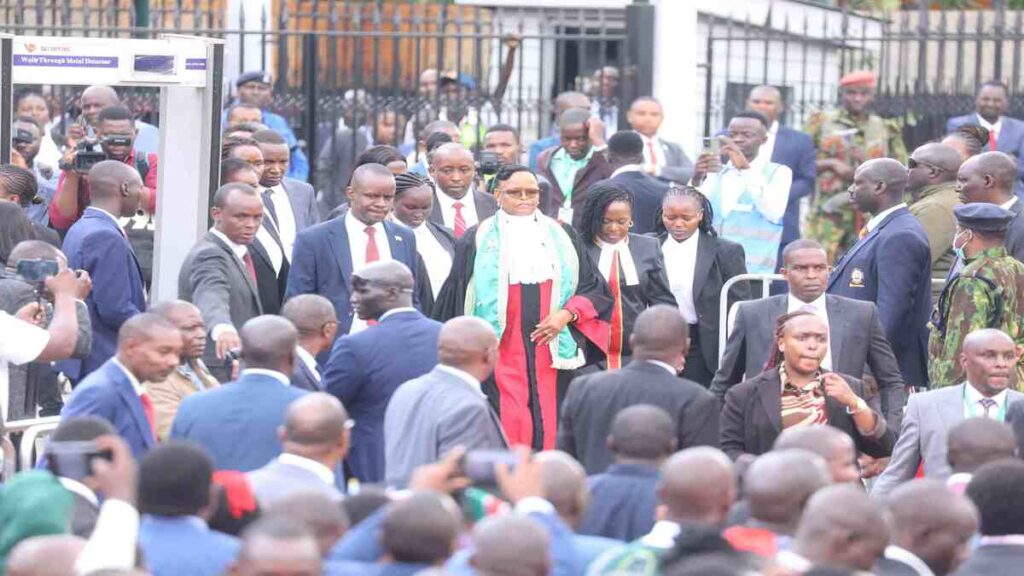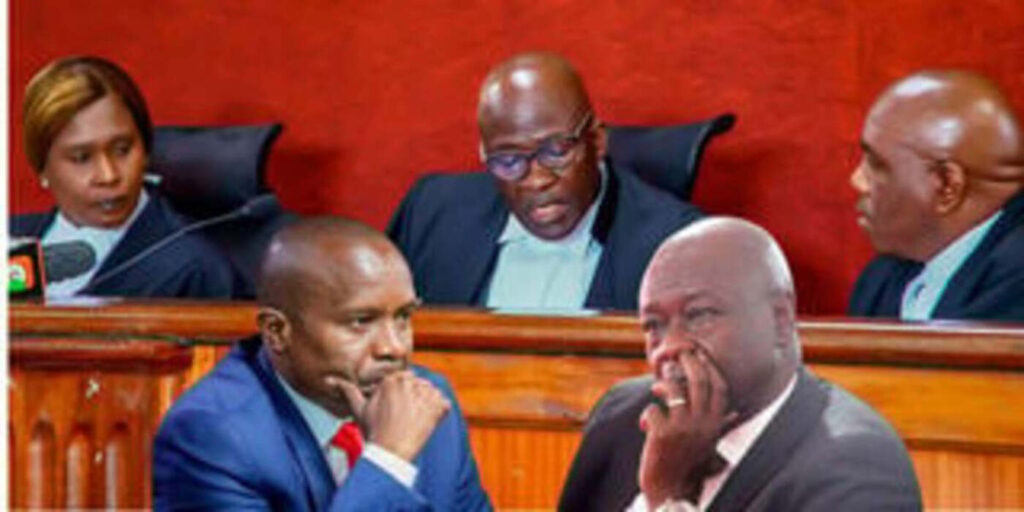The Kenyan Judiciary faces serious allegations of manipulating its electronic filing system to obstruct a petition challenging former Deputy President Rigathi Gachagua’s impeachment proceedings.

The Judiciary team led by Chief Justice Martha Koome during the swearing-in of Deputy President Prof. Kithure Kindiki at the KICC on November 1, 2024. Courtesy photo
Three petitioners – Miruru Waweru, Andrew Njoroge, and Mutonga Kamau – have accused the courts of deliberately disrupting the e-filing payment system on October 18, the same day the National Assembly was scheduled to vote on Prof. Kithure Kindiki’s nomination as Deputy President.
“It is our view that the systems were malfunctioning in a deliberate attempt to block our petition from being placed before a judge in time to affect the approval proceedings,” the petitioners stated in their complaint letter to Chief Justice Martha Koome.

The technical issues reportedly began at 9:01 AM when an unprecedented automatic refund occurred without the petitioners’ consent. This marked what they described as the first such incident since the introduction of M-Pesa payment services for court filings.
Waweru, one of the petitioners, detailed multiple failed attempts to complete the payment. “Even after Safaricom’s customer service suggested an alternative payment method through *334#, the payment failed to register in the court’s portal and was later automatically refunded,” he said.
The situation became more suspicious when a subsequent payment attempt at 9:20 AM generated a receipt timestamped 10 minutes earlier, according to the complaint filed with Chief Registrar Wilbroda Bonaya.
By the time the case reached a judge at 2:00 PM, the National Assembly had already completed its proceedings, effectively rendering the petitioners’ request for stay orders futile.
The petitioners have raised five critical questions in their complaint, demanding explanations for the unauthorised refund, the petition’s rejection, and the irregular receipt timestamps.
A prominent Nairobi advocate, speaking on condition of anonymity, supported the petitioners’ concerns. “The e-filing system has become a significant barrier to justice. It’s frequently unavailable during crucial working hours when most urgent filings need to be processed,” the advocate said.
The controversy has sparked wider debate about the reliability of the Judiciary’s digital systems. Legal experts argue that such technical failures could potentially undermine the constitutional right to access justice.
The Judiciary’s e-filing system, implemented to streamline court processes and improve efficiency, has faced criticism over its reliability since its introduction. This incident has intensified calls for a comprehensive review of the system’s security and reliability.
The petitioners are now awaiting response from both Chief Justice Koome and Chief Registrar Bonaya regarding their allegations of deliberate system manipulation.
This controversy emerges amid a period of significant political transition, with Prof. Kindiki’s confirmation as Deputy President following Gachagua’s impeachment marking a crucial moment in Kenya’s political landscape.
The Judiciary has not yet responded to these allegations, which raise serious questions about the integrity of its digital infrastructure and its role in ensuring equal access to justice for all Kenyans.

















